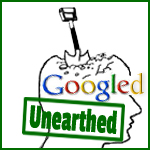 The world is saturated with “know-it-alls.” There is nothing worse than listening to some shit-brained wannabe elitist with zero life experience talk about how he/she can do it better than someone else. There was once a time when teachers and professors commanded respect because it was their guidance that allowed us to grow as individuals. Now our mentors and leaders battle mental idiots rummaging through the vast depths of the Internet finding any case of rebuttal, hoping to destroy all credibility to the experienced and proclaim their own intellectual superiority. Our elders once commanded respect because they survived experience. The experience they shared was invaluable, admirable, and a part of history known as “truth.” Now any moron with a different point of view, a slimsy cause, or personal agenda can promote their rhetoric online so other self-entitled morons can quote them as fact. It wasn’t long ago when, in order to find an answer, you asked the people you trusted; friends, family, teachers, coaches, etc. If they didn’t know the answer, then you sought to experience what you needed to find your answer, you researched it yourself at a library (A building that houses books and information), or hoped that you would meet someone in your life that knew the answer. It is that yearning for knowledge, that hope that someday we may find the answer, that made us human and, more importantly, made us respect those who did know the answer. We now instantly “Google” our way to answers; never experiencing information or fully understanding it.
The world is saturated with “know-it-alls.” There is nothing worse than listening to some shit-brained wannabe elitist with zero life experience talk about how he/she can do it better than someone else. There was once a time when teachers and professors commanded respect because it was their guidance that allowed us to grow as individuals. Now our mentors and leaders battle mental idiots rummaging through the vast depths of the Internet finding any case of rebuttal, hoping to destroy all credibility to the experienced and proclaim their own intellectual superiority. Our elders once commanded respect because they survived experience. The experience they shared was invaluable, admirable, and a part of history known as “truth.” Now any moron with a different point of view, a slimsy cause, or personal agenda can promote their rhetoric online so other self-entitled morons can quote them as fact. It wasn’t long ago when, in order to find an answer, you asked the people you trusted; friends, family, teachers, coaches, etc. If they didn’t know the answer, then you sought to experience what you needed to find your answer, you researched it yourself at a library (A building that houses books and information), or hoped that you would meet someone in your life that knew the answer. It is that yearning for knowledge, that hope that someday we may find the answer, that made us human and, more importantly, made us respect those who did know the answer. We now instantly “Google” our way to answers; never experiencing information or fully understanding it.
There is a higher appreciation for knowledge when it is obtained through difficulty. Clicking a button or finding information through Google (or any website or search engine connected to the Internet) doesn’t necessarily allow you to understand the knowledge that is pursued, but rather regurgitate the words that make up that knowledge where it seems fit. This is the theme of our world today; Access of Information vs. Experience. If a friend asks me a question, I can simply type that question into Google and get an answer. I can relay that answer to my friend as if I knew it all along, yet all I did was access someone’s experience and claim it for my own. It took no effort on my part to understand the answer and I am intelligent enough to convey said answer as if I am the one who discovered it as fact. Here in lies the problem. Anyone with the capability to read at an elementary school level can communicate said answer, thus making the questioner (friend, teachers, parents, coaches, President of the United States, etc.) the one who is without knowledge, even though they also have access to the same information. Furthermore, most information on the Internet is incorrect, skewed, biased or incomplete, making the regurgitation of said answer that much more nugatory. Google has created a world full of “Know-it-alls” at the expense of real experience and intelligence.
Today, more and more people claim they can do it better than the next, not because of experience, but because of the access of information surrounding that experience. Never in our history have we been so critical toward our world leaders, our teachers, our coaches, our parents, and our mentors. Experience commands respect. Pushing a button on a computer or electronic device to prove points, inject reason or formulate an argument does not grant the power of knowing more than another. It is lazy. It is idiotic to use what you find on the Internet as knowledge, rather than yearning to experience it for yourself. The Internet is a great tool to help us plan our experience, but never should we Google our way to self-proclaimed brilliance because we can read at a 4th grade level what someone else has written. Don’t believe what you find on the Internet; believe what you find in life. Use your experiences to teach. Bring respect back to those who have lived the answers, and laugh at those who sit around and Google their experience.